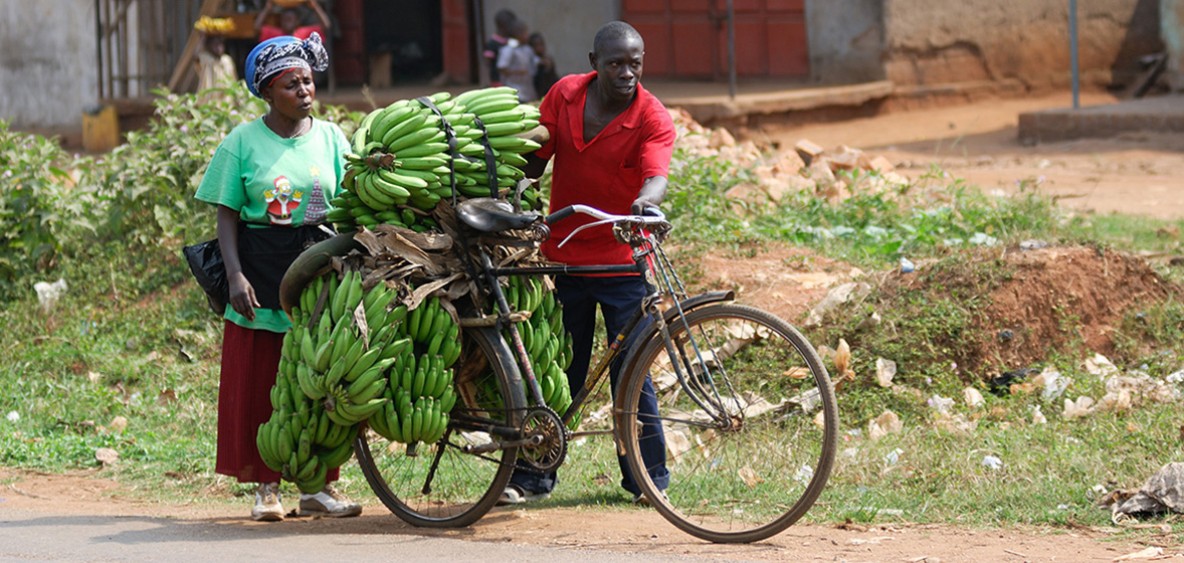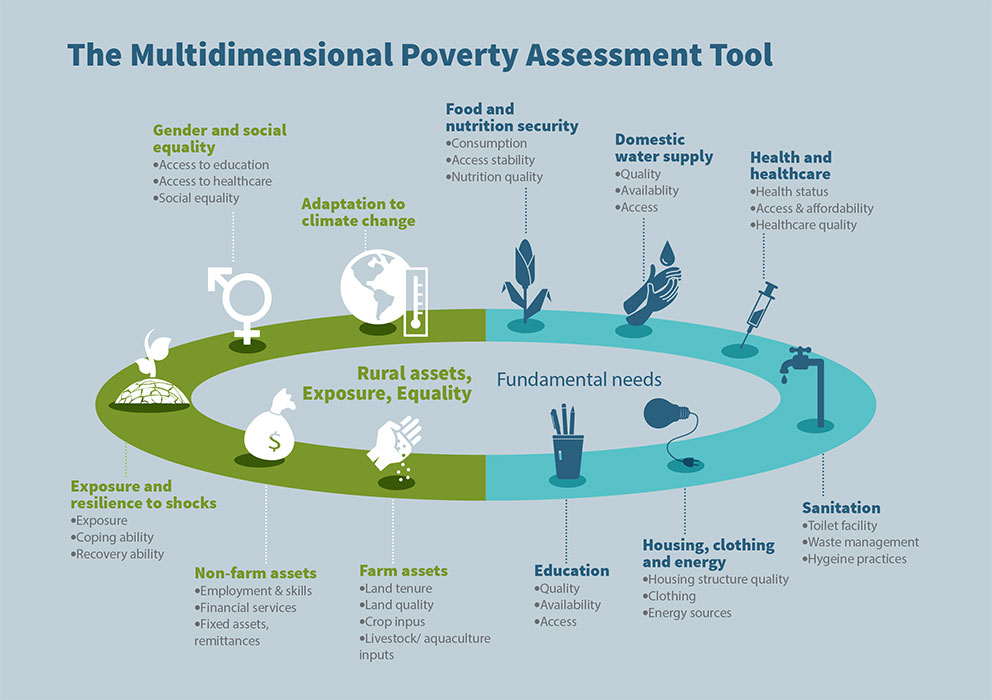
The Multidimensional Poverty Assessment Tool (MPAT) provides RFS project teams with a more holistic understanding of human well-being within project communities, informing project design, implementing and tracking of progress.
The RFS programme relies on a diverse network of partners to implement all 12 country projects. Each partner offers a wide range of expertise, approaches, and tools to assist each country project in implementing activities and achieving target impacts on environmental resilience and food security. One such tool for measuring progress at the household level is the Multidimensional Poverty Assessment Tool (MPAT), which was developed by an international initiative led by RFS Implementing Agency, the International Fund for Agricultural Development (IFAD).
The purpose of the MPAT is to provide a clearer understanding of rural poverty at the household level and to develop a strong evidence base for decision-making at all levels of governance. The MPAT consists of 143 questions that cover a range of focus areas, including gender, social equality, education, housing, sanitation, health, and farm and non-farm assets. After data is collected from households within the project sites, the MPAT produces summary scores for each focus area, ranging from low to high, that are comparable across communities, projects, and countries.

In Kenya, the RFS country project team carried out a socioeconomic baseline household survey using MPAT in over 1,000 households, with approximately 30 additional questions on soil and water conservation practices. Key findings of the survey include:
The RFS eSwatini project also conducted a baseline survey in over 980 households. Key findings of their survey include:
The implementation of these surveys in both country projects have since been used to inform project design, implementation and serve as a comparable data source for future monitoring. The MPAT data provides RFS project teams with a greater understanding of household perceptions and needs in project sites, allowing them to design project activities to address those needs and improve community well-being. The MPAT data also allows the RFS Kenya and eSwatini projects to more accurately track progress against all 11 MPAT focus areas throughout the project lifecycle and adapt activities as the project progresses.
For additional information about MPAT, download the MPAT Briefing Note or the MPAT User’s Guide.
Subscribe to our monthly newsletter to receive updates on stories directly from the field across all our projects, upcoming events, new resources, and more.